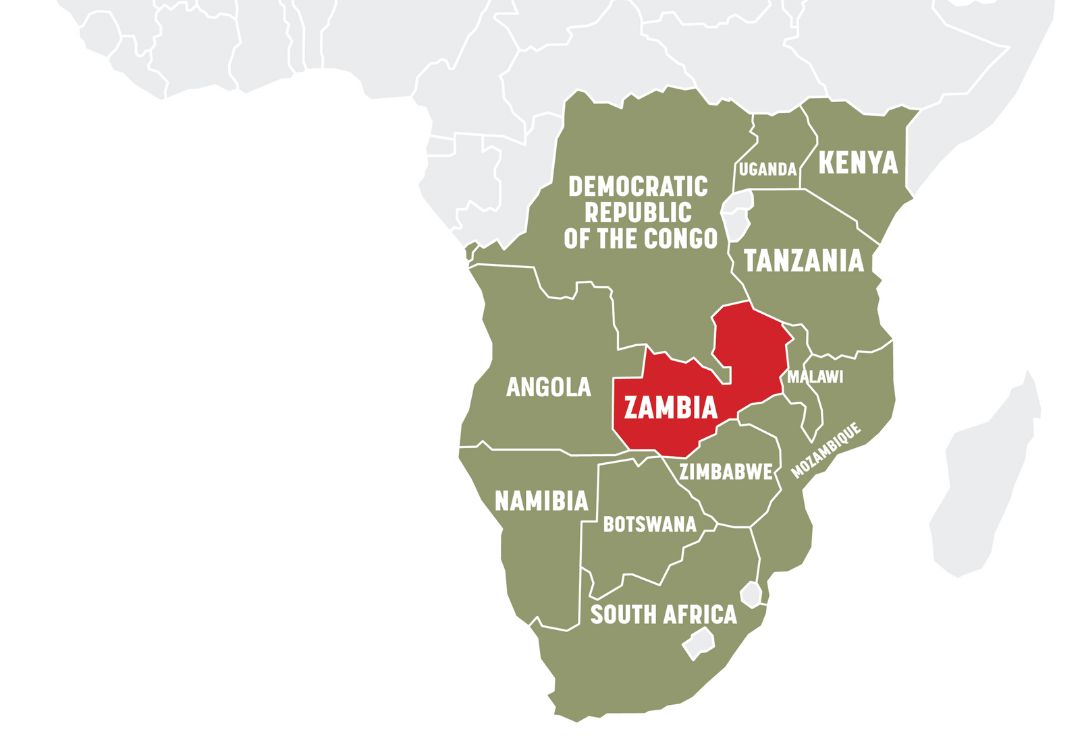WCP Zambia
Law Enforcement
The illegal wildlife trade refers to crimes involving live wildlife, wildlife products or their derivatives, both flora and fauna, across the world.
Law Enforcement Support
Wildlife and environmental crime pose significant challenges for law enforcement agencies in Zambia and the broader Southern African region. These crimes are often transnational, requiring coordination across multiple jurisdictions and agencies to effectively combat them. Illegal wildlife trade (IWT) is driven by complex factors, including economic incentives, organised criminal networks, and gaps in enforcement capacity. Without a comprehensive and collaborative approach, tackling this issue remains a daunting task. To address the intricate nature of IWT and its root causes, WCP has adopted a regional problem-solving approach that brings together key partners and stakeholders across sub-Saharan Africa.
Recognising that wildlife crime is not just a conservation issue but also a law enforcement and socioeconomic challenge, we work to strengthen cross-border collaboration, improve information sharing, and enhance the ability of authorities to detect and disrupt illegal activities.
A critical component of our work is understanding the socioeconomic drivers behind wildlife crime. Many communities living near protected areas depend on natural resources for their livelihoods, making them vulnerable to exploitation by criminal networks. Raising public awareness about the consequences of wildlife crime—both for biodiversity and for national security—is key to shifting perceptions and encouraging greater community participation in conservation efforts.
Capacity-building is at the heart of WCP’s strategy. Through training programmes, resource provision, and skills development, we work to strengthen the ability of law enforcement agencies to combat wildlife crime effectively. By fostering cooperation through regional forums and best-practice exchanges, we help establish a more unified and resilient approach to addressing environmental crime.
By integrating anti-poaching efforts with counter-trafficking strategies, WCP amplifies the Department of National Parks and Wildlife’s (DNPW) impact, ensuring that both in-country and cross-border threats are addressed holistically. Through direct support to mandated organisations in Zambia and beyond, we increase the capacity and resources available to fight wildlife crime, contributing to long-term, meaningful change.
WCP collaborates with and aims to provide long-term sustainable support to key government partners including the Department of National Parks and Wildlife (DNPW), the National Prosecution Authority (NPA), Zambian Correctional Services (ZCS), the Drug Enforcement Commission (DEC), the Forestry Department and the Anti Corruption Commission (ACC). Our support includes:
- operational resources
- capacity building
- advocacy
- support to effective prosecutions and appropriate sentencing
- awareness
By fostering national and international law enforcement cooperation, IWT is disrupted across a wider geographic area, increasing the overall impact.
Communities and law enforcement
Wildlife law enforcement is crucial in protecting local communities, particularly those more vulnerable to the impacts of illegal wildlife trade.
It has significant social and economic effects, including loss of livelihoods, displacement and human rights violations. By enforcing laws and regulations that protect wildlife, law enforcement agencies help to protect local communities from the impacts of crime:
- The loss of natural resources (e.g., forests, wildlife and fish stocks)
- The loss of livelihoods and economic opportunities.
By enforcing laws that protect wildlife and their habitats, law enforcement agencies ensure that these resources are more sustainable and benefit all Zambians through sustainable resource use, such as tourism.
Wildlife enforcement actions:
- protect the rights of vulnerable and marginalised communities
- ensure healthy and safe environments
- promote social and economic justice by holding those responsible for environmental crime accountable for their actions
- promote transparency and accountability
- ensure those responsible are accountable for their actions.
Our approach addresses the multiple challenges of climate change, biodiversity loss, and environmental crime with long-term, multi-agency coordination and strategic and well-planned action. By working with our partners and stakeholders, we continue to provide sustainable and effective solutions to reduce and prevent wildlife trafficking in Zambia and the region.

